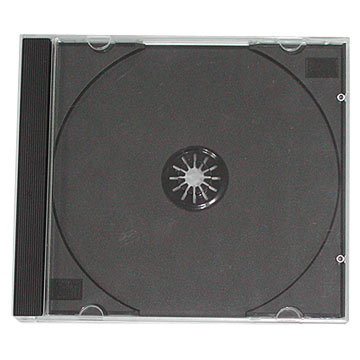 For $31 per year (Update: see the breakdown below), musicians both unknown and legendary will soon be able to get their CDs printed and sold through Amazon, no questions asked.
For $31 per year (Update: see the breakdown below), musicians both unknown and legendary will soon be able to get their CDs printed and sold through Amazon, no questions asked.
Following in the footsteps of CDBaby, but with a crucial difference, TuneCore and Amazon will launch an on-demand CD printing service, Wired’s Eliot Van Buskirk reports. The musician pays $31 per year for printing, labeling and delivery of a 10-track CD. Amazon sells the CDs for $8.98 each and keeps 60 percent. The rest goes to the musician.
In terms of keeping a low barrier to entry, CDBaby and TuneCore’s services are fairly similar — I could break down the differences in price and process, but I’m sure things will change once the two companies start competing. The real distinction is the muscle TuneCore brings to the table. Buskirk notes that Trent Reznor, Keith Richards and Joan Jett are already clients of TuneCore for other digitial distribution services, and they’ll likely be itching for yet another way to escape the major labels. With TuneCore, they only have to sell nine CDs each to break a profit, and they keep all the rights to their music.
Not that online printing is without drawbacks for consumers: The immediacy of purchasing a CD in a store is absent, and so is the chance to own something with elaborate packaging, as TuneCore’s liner note options are a fairly standard set of sleeves and inserts. Buskirk also raises the issue of selling CDs at a concert, but I don’t see why the band itself couldn’t order a thousand copies and sell them for a premium at the show.
Paramount to all this nitty-gritty is the not-so-novel idea that the music business as a whole is decentralizing. The cleverest musicians, big and small, are finding ways to advertise and sell products without major labels. Meanwhile, entrepreneurs are capitalizing in spaces where the music industry was too big, dumb and slow to venture.
These monoliths will shrink, and companies like TuneCore will be the catalysts.
Update: So we’re all clear, TuneCore’s Peter Wells, who comments below, breaks the pricing down in an e-mail as 19.98 for a year of maintenance and storage of the physical CD, plus 99 cents per song, plus a flat fee of 99 cents to sell the album through Amazon, totalling roughly $31. An extra dollar distributes the song to iTunes as a digital download.
 One little article by PCMag has done “immeasurable” harm to musicians, at least according to music industry executives.
One little article by PCMag has done “immeasurable” harm to musicians, at least according to music industry executives.
 Fascinating finding from the folks at the NPD Group: Americans now stream as much music as they download, at least on computers.
Fascinating finding from the folks at the NPD Group: Americans now stream as much music as they download, at least on computers.

 For $31 per year (Update: see the breakdown below), musicians both unknown and legendary will soon be able to get their CDs printed and sold through Amazon, no questions asked.
For $31 per year (Update: see the breakdown below), musicians both unknown and legendary will soon be able to get their CDs printed and sold through Amazon, no questions asked. For as little as we know about Apple’s approval process for iPhone apps, I kind of expected the nin:access program — which allows fans of the band Nine Inch Nails to enjoy streaming music and other perks — to pass with flying colors. Apparently I was wrong, as the latest update to the application was denied.
For as little as we know about Apple’s approval process for iPhone apps, I kind of expected the nin:access program — which allows fans of the band Nine Inch Nails to enjoy streaming music and other perks — to pass with flying colors. Apparently I was wrong, as the latest update to the application was denied.